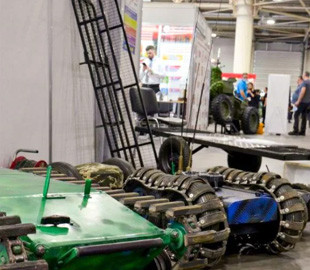
NATO countries are actively developing new weapons that will allow them to gain a technological advantage over the Russian Federation . For example, The Times writes about a ground robot at a military base in Latvia, which is controlled by a Spanish operator via the 5G network from Madrid.
According to Latvian Defense Minister Andris Spruds, this device is still being used on a “limited scale”. however, NATO now wants it to operate smoothly at a “deeper level”.
It is about being able to coordinate many robotic systems and have them work together – robots on the ground, drones in the sky under the control of the military far from the front line.
“The future of modern warfare is being shaped in Ukraine. To overcome the Russian threat maintaining a technological advantage is extremely important. I want to emphasize the importance of keeping up,” said Estonian Prime Minister Kristen Michal.
In his opinion, NATO's previous defense commitments were “inadequate” and could “leave us behind.” The Prime Minister believes that the countries of the Alliance should always set new goals for themselves.
200% Deposit Bonus up to €3,000 180% First Deposit Bonus up to $20,000As the publication indicates, the “flying Javelin” – Beak high-precision weapons system was also developed. It launches a munition and returns to base, which is more practical than expensive kamikaze drones.
Also created is an unmanned ground vehicle that transports a wounded soldier to safety and a surface ship that can patrol unmanned territory.
Against the backdrop of NATO's technological efforts, there are other challenges for member countries. In particular, the possible victory of Donald Trump in the presidential elections in the USA,
According to Mihal, he, like Trump, wants NATO allies to make a greater contribution to defense. Estonia will soon spend 3.5% of national income on defense, while Great Britain spends 2.3% of GDP on it.
At the same time, the politician supports President Volodymyr Zelenskyi's victory plan, which he described as “reliable”. This would put Ukraine in a stronger position, and Russia would be forced to negotiate.
“Not the other way around. Because, frankly, we know Russia – politeness is a weakness for them,” Michal emphasized.
p>
He also spoke out against restrictions on Ukraine's use of long-range weapons.
Latvian Prime Minister Evika Silina added that waiting for the results of the US elections has already led to an “unpredictable future” under during the conflict in Ukraine and the Middle East. As she explained, allies need strong leadership from the States.

